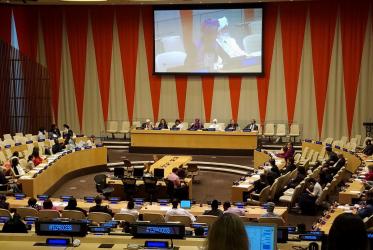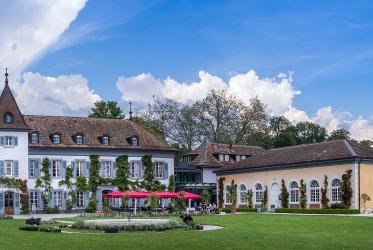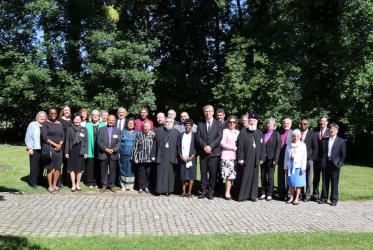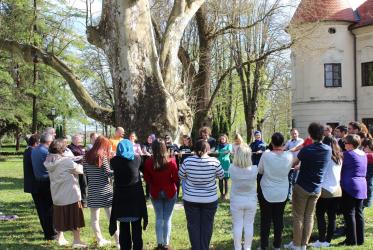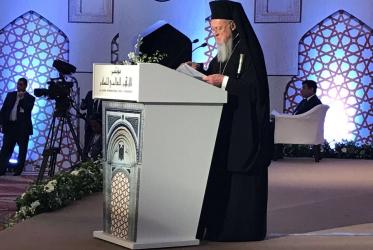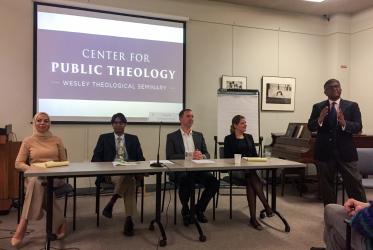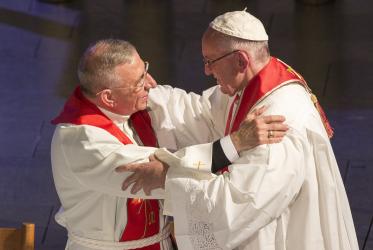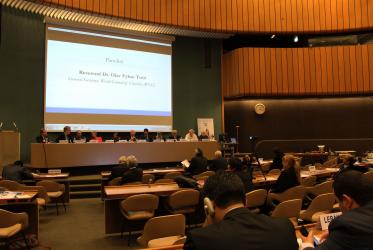Displaying 121 - 140 of 260
19 September 2017
WCC students study what makes a peace communicator
18 July 2017
G20 summit: call to pray for peace in Hamburg
07 July 2017
WCC Executive Committee to focus on unity
08 June 2017
‘Love is stronger than hate’
02 May 2017
Islam and Christianity: finding the common ground
16 March 2017
“What can we contribute as a worldwide fellowship?”
06 March 2017
WCC general secretary speaks on religion and discrimination
14 February 2017
An interview with the Ethiopian Patriarch, Abune Matthias
14 February 2017


